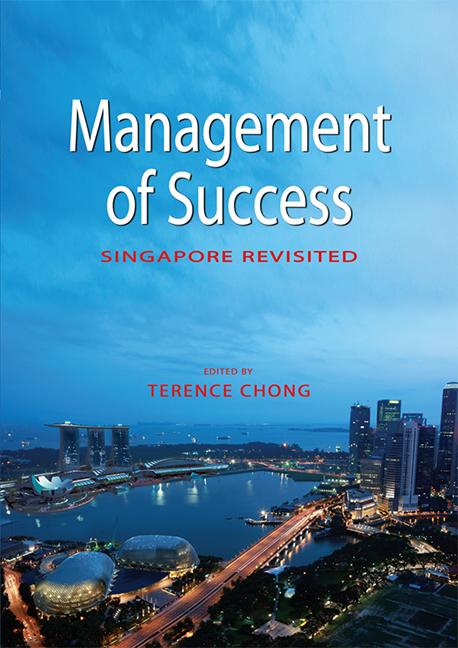Book contents
- Frontmatter
- Contents
- List of Tables and Figures
- Foreword
- Message
- Quote
- Preface
- The Contributors
- 1 Introduction: The Role of Success in Singapore's National Identity
- SECTION 1 SINGAPORE IN THE BIGGER PICTURE
- SECTION 2 LEADERSHIP, POLICY AND POLITICS
- SECTION 3 THE RESTRUCTURING OF THE ECONOMY
- SECTION 4 THE TRANSFORMATION OF SOCIETY
- SECTION 5 THE LAW
- 19 The Penal Code Amendments of 2007: Lessons in Love
- 20 “More Matter, with Less Art”: Human Rights and Human Development in Singapore
- SECTION 6 MODIFICATION OF THE ENVIRONMENT
- SECTION 7 COMMUNITY AND NATIONAL SECURITY
- SECTION 8 LIFE IN SINGAPORE
- Index
19 - The Penal Code Amendments of 2007: Lessons in Love
from SECTION 5 - THE LAW
Published online by Cambridge University Press: 21 October 2015
- Frontmatter
- Contents
- List of Tables and Figures
- Foreword
- Message
- Quote
- Preface
- The Contributors
- 1 Introduction: The Role of Success in Singapore's National Identity
- SECTION 1 SINGAPORE IN THE BIGGER PICTURE
- SECTION 2 LEADERSHIP, POLICY AND POLITICS
- SECTION 3 THE RESTRUCTURING OF THE ECONOMY
- SECTION 4 THE TRANSFORMATION OF SOCIETY
- SECTION 5 THE LAW
- 19 The Penal Code Amendments of 2007: Lessons in Love
- 20 “More Matter, with Less Art”: Human Rights and Human Development in Singapore
- SECTION 6 MODIFICATION OF THE ENVIRONMENT
- SECTION 7 COMMUNITY AND NATIONAL SECURITY
- SECTION 8 LIFE IN SINGAPORE
- Index
Summary
CRIMINAL LAW — TOO MUCH OR TOO LITTLE
It is unusual for a criminal lawyer to think about concepts as abstract as “space”. However, a moment's thought is enough to realize that criminal law is all about space — liberty, or the freedom to choose to do what we want to do, is circumscribed by a number of things, but in a significant measure by criminal law. Where a particular activity is designated a crime, that much space is taken away from the individual. That we do have criminal law at all, and all societies have some form of it, is a clear indication that good government is not about the mindless maximization of individual space. It should nonetheless afford presumptive value to space. Freedom or liberty is, all else being equal, good — after all our Constitution has a number of key provisions collectively called “Fundamental Liberties”. Yet we all expect the government to restrict space where there is a good reason to do so. What is or is not a good reason is often not controversial — no one in stable societies would think twice about denying someone the liberty of murdering, raping or thieving. Such activity harms others in a significant enough way, or in the language of space, giving space to the individual who would do such things will destroy the space of others to live their lives in peace and security. So the line between criminalization and non- or decriminalization is to be drawn according to a balance between the legitimate interest of the individual to engage in that kind of activity and the legitimate interest of others who would be affected by the same. To criminalize too much would be to infringe unjustifiably on the space of those who would engage in that kind of activity; to criminalize too little is to fail to preserve the legitimate space of the victims of such activity.
The Penal Code amendments of 2007 were, in ambition, unremarkable — a collection of more or less housekeeping changes which had been on the cards for years. So it was to my surprise that two issues arising from the proposed amendments came to dominate public discourse for weeks, perhaps even months — no mean feat in an age of short attention spans.
- Type
- Chapter
- Information
- Management of SuccessSingapore Revisited, pp. 335 - 354Publisher: ISEAS–Yusof Ishak InstitutePrint publication year: 2010

